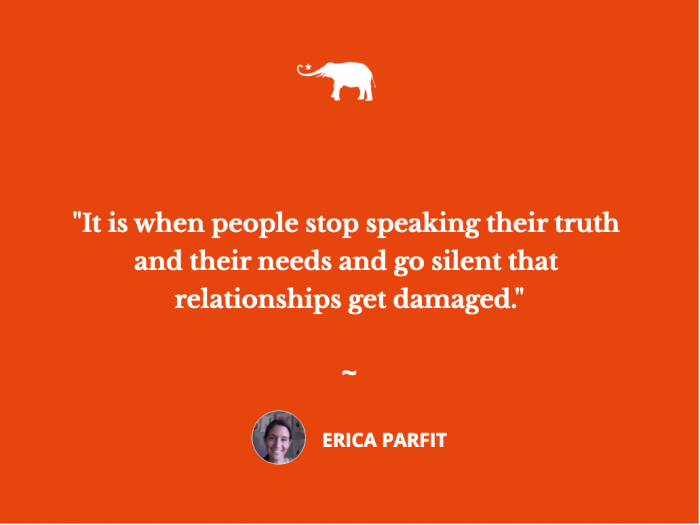View this post on Instagram
Someone who will walk with me sometimes in silence and sometimes in song. Sometimes together and sometimes apart. Independent and united.
Not together in ownership—together in awareness, in synchronicity, in understanding, in friendship, in communication, in passion.
Not one: two. Whole apart and whole together. United individually.
~
I stopped into the corner store next door for a pint of Dutch chocolate Blue Bell ice cream and a single Bota Mini Cabernet Sauvignon. The ice cream now has fork lines raked across the newly vacated top layer. A white, curved, ceramic coffee mug works just fine as a wine glass. I think about the obvious singleness of my purchases as I savor the flavors, alone in my warm and comfortable home.
I’ve been thinking a lot about relationships. I’ve been thinking about why I keep getting onto Bumble and then right back off. I think about why the three dates I’ve been on in the past four years were single dates without a second because I called off any chance of a second before there was even an attempt to ask.
I think about why I find myself wishing for a man’s arms around me and all of the lovely parts of that kind of relationship, but then find myself stopping short because of the societal depiction of that kind of love.
I think it comes down to ownership and control. I would love to find a partner who can be a friend and a lover, someone who can be in my life in that singular physical way, and also be the person I would want to call when I need to know someone has my back. But it seems that relationships of that kind often get so bogged down by “supposed to” that they get filled with a sense of ownership that eventually (or immediately) leads to a desire to control.
Many will get this far and think, “Oh, this is an article proclaiming the joys of polyamorous relationships.” No. Actually, since I’m putting myself out there, I’ve recently realized that the correct term for my personal sexuality is demisexual.
On WebMD, it says, “Demisexual people only feel sexually attracted to someone when they have an emotional bond with the person. They can be gay, straight, bisexual, or pansexual, and may have any gender identity. The prefix ‘demi’ means half—which can refer to being halfway between sexual and asexual.”
So, for me, in order for sex to be great, there needs to be a damn good emotional connection as well as sexual chemistry. And I don’t find myself sexually attracted and emotionally connected to the same person often.
So, while I have lots of dear friends who live polyamorous lifestyles, and I respect and admire their ability to love in that way, this is not an article written to convince anyone of the merits or demerits of any particular kind of sexual lifestyle.
What this is first, is a question. Why when many of us get into relationships, do we find that we feel a need to act as if our partner is in some way “ours?” We romanticize that idea of “you’re mine and I’m yours” as if it were something beautiful and good.
Vast landscapes of film, literature, song, and daydream have come out of this idea that to truly love someone, you must proclaim some sort of ownership with them, you give yourself to them fully, and they must do the same for you. But, really, honestly, is that even healthy?
Excessive control in relationships is running rampant these days. There are so many controlling partners who abuse their wives/husbands with restrictions and limitations—financially, socially, emotionally, or in other ways.
This is a virus, maybe as widespread as COVID-19, maybe even more rampantly raging. The word “narcissist” is everywhere. I have experienced firsthand this kind of controlling behavior. It is extremely damaging, and it is why I am still single. I will never allow myself to be considered “owned” by another human being again.
Instead, to my future partner, whoever that may be, and to others who have experienced the damaging effects of love as defined by fairy tales and other disturbing ideologies, the second reason for this article: a suggestion. A new way to love, or maybe an old way, reinvented.
Yes, we can romantically love and be loved by only one other person. Yes, we can have deeply committed monogamous relationships. Yes, we can be each other’s “person.” But instead of being owned and owning one another, we can hold one another passionately and yet wholly. We can allow one another space and time.
We can’t know what the other person is up to on any given night, because it is not always our business. It is our business when they are with us. If they have told us they aren’t going to be sleeping with another because that is our agreement, that’s enough. We don’t keep tabs on one another. Instead, we trust them to be truthful because we are the same.
We hold our lovers in the same respectful space as we hold our truest friends. We are fully present when we are together, and then, when we are apart, we are living our lives with contentment in that moment, knowing that the other is also living however they live best in their space. We own ourselves fully and know that the other does the same.
In that way, we build each other up when we are together because we bring our full selves, and when two people who are able to bring their full selves come together, that is when the real magic happens. That is the meaning of true love.
True love doesn’t demand to know the exact movements of the other at all times.
True love doesn’t keep tabs on the other, getting hurt if the other doesn’t respond in a timely manner. True love asks, “Are you able to be fully yourself and know I love you as you are?”
Now, there are many who aren’t ready to be in this kind of relationship. There are many in our world who aren’t safe to love in this way. In order to be in this kind of trusted and trusting relationship, there must be a deep current of honesty. There must be a friendship. And there must be enough emotional growth on both sides, that both are able to trust deeply and be truly honest. There must also be enough growth on both sides to be able to handle deep honesty from the other.
What I mean here is, if a relationship like this can work, it is because both sides aren’t afraid to have the hard conversations. Both people in the relationship need to be able to say, “I need space,” or, “Something here isn’t working right now,” or even, “I’m finding myself attracted to…in more than just a passing way” because many of those things will inevitably happen.
Both people in the relationship need to be able to hear the hard words sometimes and hold space for them and respond with their own truth in a present and non-damaging way. It is when people stop speaking their truth and their needs and go silent that relationships get damaged. It’s when people stop listening to one another.
My truest friend and I have meta conversations fairly regularly. A meta conversation means that we talk about the bones of the relationship. When one is able to talk about even the hardest things, that is when a relationship passes the surface test and is finally able to go deep. My truest friend and I sometimes go for long periods without talking. Both of us are okay with that because we are so deeply rooted in our trust for one another that we know if something were wrong, it would be brought up.
That understanding between us that we can talk about things if they are wrong also gives us trust that things are good between us, because if they weren’t, we’d be talking about it.
So, for now, I stay single. I won’t ever be owned or own another person again. Now and then I’ll eat ice cream with a fork, drink wine from a curved coffee mug, and relish the understanding that I am here, being fully myself, and that is just right.
~







Read 7 comments and reply